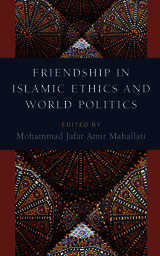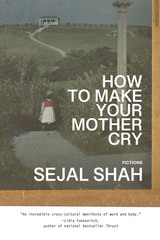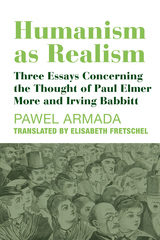
Descriptions of dreams abound in the literatures of the Near East and North Africa. The Prophet Muhammad endowed them with a theological dimension, saying that after him “true dreams” would be the only channel for prophecy. Dreams were often used to support conflicting theological and political arguments, and the local chronicles contain many accounts of royal dreams justifying the advent of new dynasties.
This volume explores the context of these theological speculations and political aspirations through the medium of dreams to present fascinating insights into the social history of the pre-modern Islamic world in all its cultural diversity. Wider cultural exchanges are discussed through concrete examples such as the Arabic version of the Aristotelian treatise De divinatione per somnum. Some of the current scholarly assumptions about dreams being merely stylized expressions of social conventions are challenged by personal reports that express individual personalities, self-awareness, and spiritual development.
This is the first volume of the Ilex Series on Themes and Traditions. The series explores cross-cultural constructs without losing sight of the rich texture of local variations of traditions or beliefs.

Based on a decade of direct diplomatic engagement with the United Nations, a decade of teaching on international relations, and another decade of research and teaching on Islamic and comparative peace studies, this book offers a friendship-related academic framework that examines shared moral concepts, philosophical paradigms, and political experiences that can develop and expand multidisciplinary conversations between the Christian West and the Muslim East. By advancing multicultural and interreligious discourses on friendship, this book helps promote actual friendships among diverse cultures and peoples.
This is not a monologue. It provides a model of conversations among scholars and political actors who come from diverse international and interreligious backgrounds. The word “Islamic” should not mislead the reader to suspect that this edited volume delves only into religious discourses. Rather, it provides a forum for conversations within and between religious and philosophical perspectives. It sparks friendship conversations thematically and through disciplinary and cultural diversity. The result of the work of many prominent international scholars and diplomats over many years, it conveys at least one message clearly: friendship matters for not only our happiness but also for our survival.

In the context of a growing scholarly literature devoted to the topics of biography and autobiography, especially in the Arabic literary tradition, the essays in this volume explore the forms and meanings of these genres with particular reference to Persian writings, as well as to writings in Arabic and Turkish that were also composed in Persianate societies.
The authors address, among other topics, biographies and autobiographies of women; biographies of specific occupational groups, such as poets; the relation of traditional “lives of poets” to the reception of their literary works; intertextuality across biographical and autobiographical writings and across languages; and the processes involved in translating written biographies for the contemporary television screen.
Readers are invited to glimpse the lives of figures from the past and to appreciate the historical, cultural, and literary contexts that shaped their biographical and autobiographical narratives, and to reflect on the continuing significance of these narratives into the modern era.
READERS
Browse our collection.
PUBLISHERS
See BiblioVault's publisher services.
STUDENT SERVICES
Files for college accessibility offices.
UChicago Accessibility Resources
home | accessibility | search | about | contact us
BiblioVault ® 2001 - 2024
The University of Chicago Press









